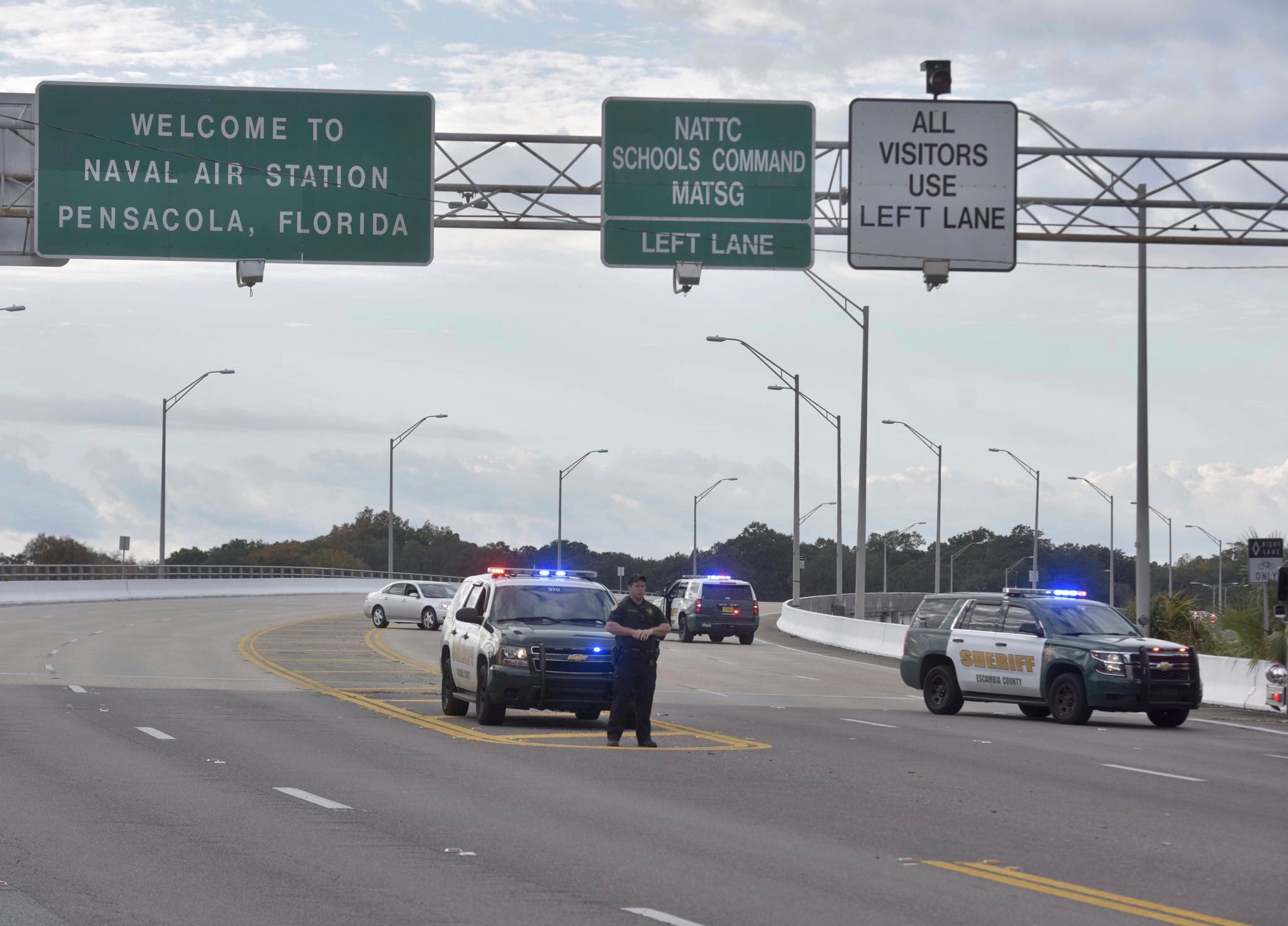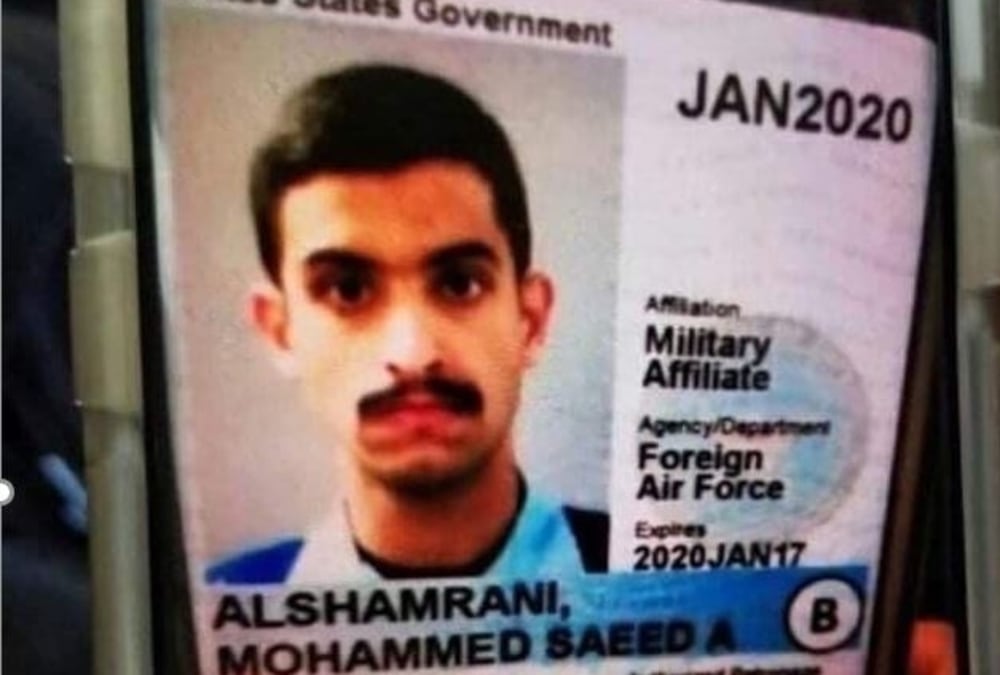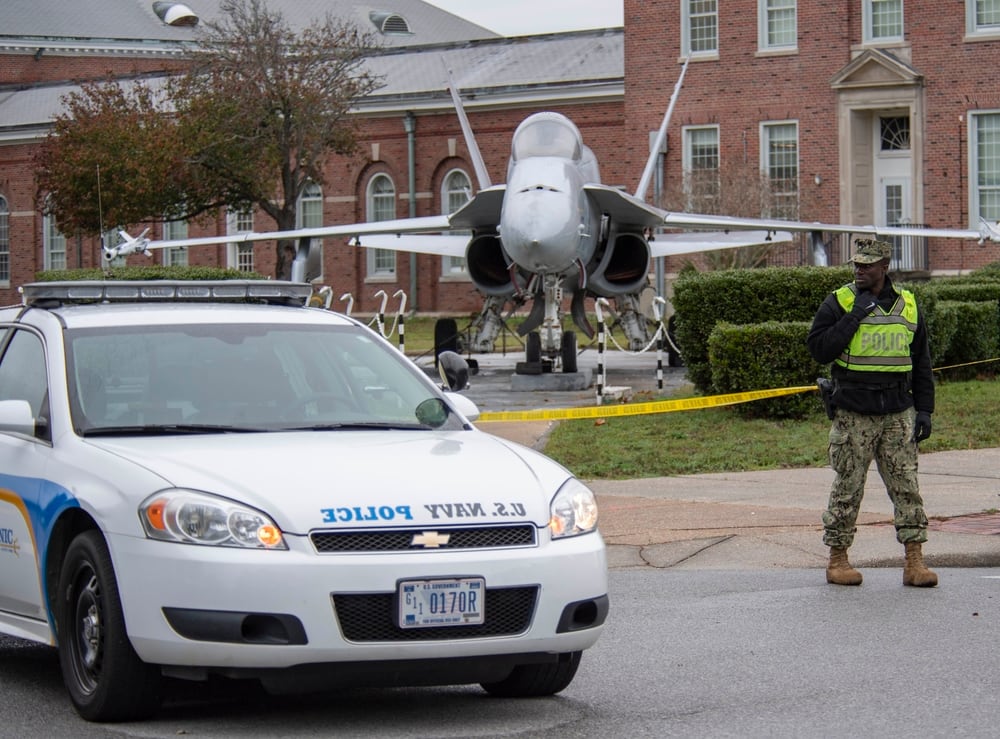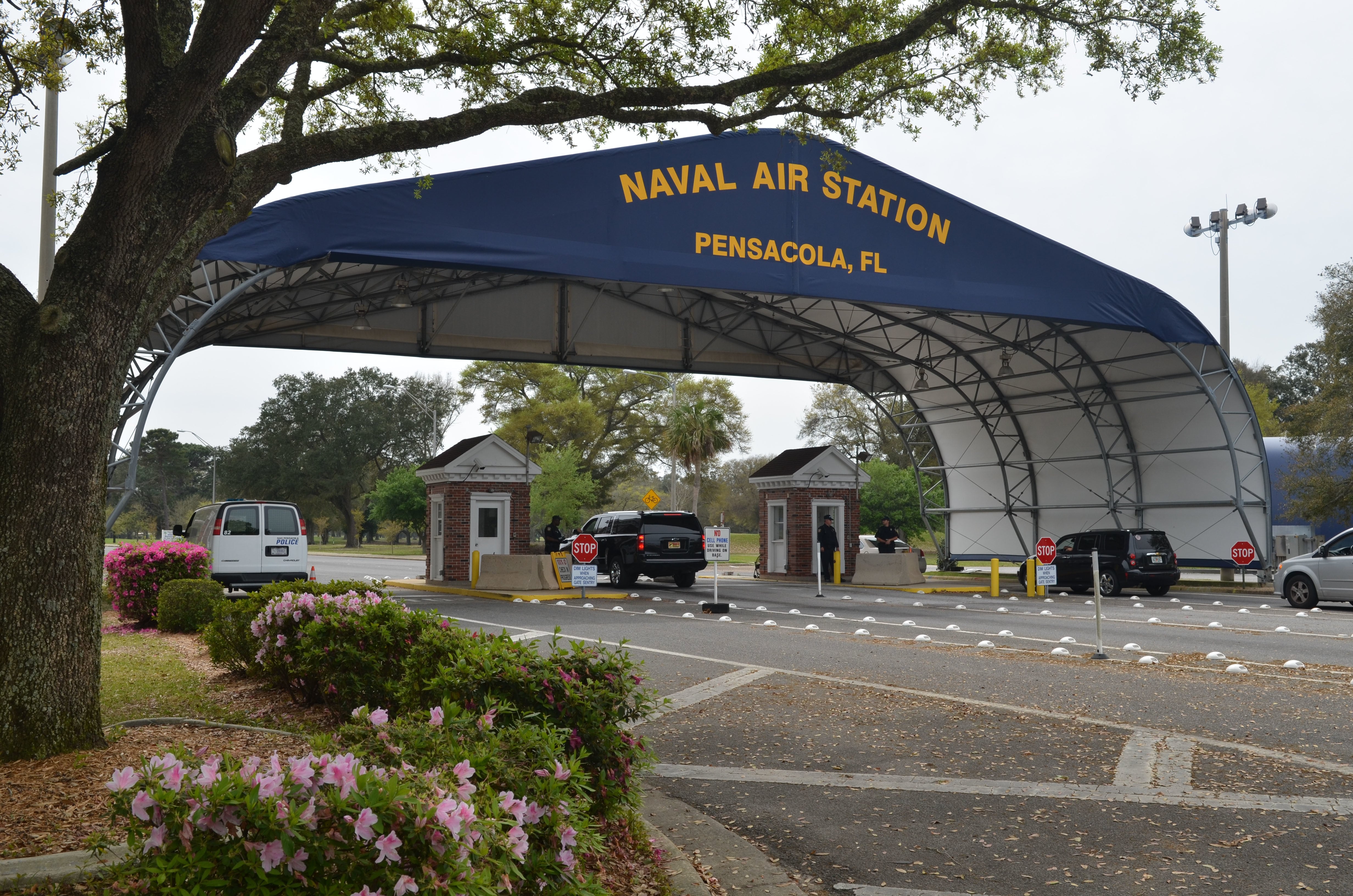Beginning Tuesday, foreign nationals who rely on a common access card to enter naval installations must get permission to keep using it as a pass.
The new requirement was issued Thursday in an administrative message. It comes amid heightened security measures in the wake of the deadly shooting by a Saudi flight student at Naval Air Station Pensacola in December that killed three sailors and wounded eight others.
Foreign nationals, including their dependents, will no longer have “implicit” access to installations, but must establish a purpose to gain entrance.
The changes are being made through the Defense Biometric Identification System.
RELATED

About 5,200 people, including dependents, will be affected by the new requirement, Navy Installations Command spokesperson Stephen D. Clutter said in a Thursday email to Navy Times.
Official documents foreign nationals may use to establish a need for base access include international travel orders, visas, applicable international agreements or other official documentation, plus letters signed by commanding officers of the installations, he added.
“This new requirement is not intended to deny benefits already extended to international military students, foreign nationals and dependents," Clutter said. "The Navy will make every effort to minimize disruptions to our foreign national partners while implementing the revised DoD installation access control policy.”
The updated guidance also includes new provisions for international military students and other foreign nationals seeking to travel for duty, work or leisure excursions to U.S. bases.
Following a sweeping review after the Dec. 6 shooting in Pensacola, the Pentagon last month ordered the services to implement measures designed to shore up potentially shoddy security.
The military’s reforms also propose to limit off-base travel and mandate the continuous vetting of a student’s social media to identify anti-American or radical views.
On Jan. 31, the Navy issued an initial round of changes, including barring military students and their families from owning or using personal firearms while in the U.S.
Military leaders hope the changes supplement the initial screenings that allow international students to participate in U.S. military training programs.

Saudi Royal Air Force 2nd Lt. Mohammed Alshamrani relied on a hunting loophole to legally purchase a Glock 9mm pistol from a Florida dealer in July, several months before he massacred three sailors in an early morning rampage that U.S. Attorney General William Barr later characterized as an “act of terrorism."
Although Barr insists that there’s no indication that Alshamrani acted in concert with other students, he announced the deportation of nearly two dozen Saudis who had been in the U.S. for military training.
Seventeen of the Saudis were sent home after investigators said they discovered either anti-American or “jihadist” material on their social media, while 15 also had contact with child pornography.
Alshamrani was killed by a sheriff’s deputy during a shootout at the Florida base.
Pentagon spokesman Air Force Lt. Col Uriah L. Orland told Navy Times in an email Thursday that the Army and Air Force have resumed full training of their students.
Navy spokesperson Lt. Andriana Genualdi said Saudi flight students remain restricted to classroom training.
RELATED

.
Courtney Mabeus-Brown is the senior reporter at Air Force Times. She is an award-winning journalist who previously covered the military for Navy Times and The Virginian-Pilot in Norfolk, Va., where she first set foot on an aircraft carrier. Her work has also appeared in The New York Times, The Washington Post, Foreign Policy and more.




